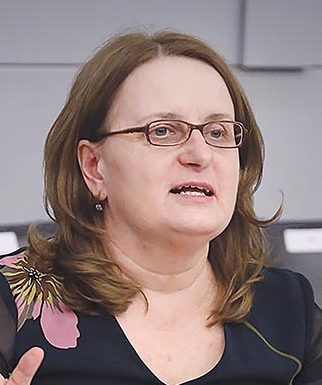There’s no doubt that forming a regional market might unshackle intraregional trade and make the Western Balkans a more attractive investment destination. However, there are deeper considerations that must be taken into account when gauging the motivations and ultimate benefits
Is the Western Balkans regional economic zone a path to the EU market or not? Who may act as a unifying force in bringing the Western Balkan countries closer to one another? Which obstacles must first be removed? Is this idea even worth discussing if it proved unachievable under CEFTA? Our interlocutors gave us varying answers – from unwavering support for the idea to some marked reservations – but all underlined that there is a long list of obstacles that should first be removed.
 Christoph Leitl
Christoph Leitl
President of Eurochambres
Integration Should Contribute to Harmonisation With the EU
Regional Integration Would Be a Win-win Idea. Yet, for Successful Implementation, The Overall Framework Has to Be European, As This Is the Natural Choice for The Western Balkan Countries, Both Economically and Politically
The formation of the Western Balkans Regional Economic Zone would be a “Win-Win situation” – both regionally and when it comes to cooperation with the EU: the EU remains by far the biggest trading partner of the Western Balkans, both for imports (73.5%) and exports (80.6%). EU companies are also the biggest investors in the region, providing 73 per cent of foreign direct investment.
Regional integration strengthens competitiveness and cooperation within the Western Balkan countries – regional integration is a key factor in raising living standards in the Western Balkans. The creation of a Regional Economic Area (REA) brings more competition and allows economies of scale and productivity gains. A regional market would unshackle intraregional trade and make the Western Balkans a more attractive investment destination.
It could also contribute to harmonisation with EU law – market integration based on EU rules and standards will help create opportunities for developing new value chains and increasing the attractiveness of the region for foreign direct investments, including from the EU. EU-based investors are the main external drivers of growth and job creation in the region. The key to strengthening the resilience of the region is to ensure the full adherence of any foreign-funded economic activity to EU values, norms and standards, notably in key areas such as the rule of law, public procurement, the environment, energy, infrastructure and competition.
The stability of the Western Balkans can only be maintained in the long term under the umbrella of the EU: membership would mean that the borders between these states would be both solid and permeable. This would make nationalist unification projects unattractive.
Regional Integration Would Help Strengthen The Resilience Of The Western Balkans. It Should Also Ensure The Full Adherence To Eu Values, Norms And Standards Of Any Foreign–funded Economic Activity
Indeed, the EU’s enlargement policy must continue to export stability. The opening of EU membership negotiations with the Balkan states of North Macedonia and Albania would be an important signal for these countries.
However, there are certain obstacles that must first be removed. On bilateral trade and customs problems (e.g. Kosovo-Serbia) – the dismantling of non-tariff barriers: relations between Pristina and Belgrade worsened, most visibly with Kosovo’s decision to impose 100 per cent tariffs on imports from Serbia and Bosnia-Herzegovina.
The EU cannot and will not import bilateral disputes and the instability they can entail. Definitive and binding solutions that contribute to regional stability must be found and implemented before a country accedes. Good neighbourly relations and regional cooperations are essential elements of the Stabilisation and Association and enlargement processes. The historic agreement reached between North Macedonia and Greece resolving the 27-year-old name dispute sets an example of reconciliation for the region and beyond.
Rule of law needs to be improved, while jurisdiction and administrative capacity needs to be built up: the proper functioning of democratic institutions remains a key challenge in most countries. Credible progress in this area remains a significant challenge. These shortcomings often correlate with a lack of political will and institutional resistance.
 Marko Čadež
Marko Čadež
President of the Chamber of Commerce and Industry of Serbia (CCIS) and President of the Managing Board of The Western Balkan 6 Chamber Investment Forum
More Freedom, More Business
With the building of a common regional market, our companies would gain space to do business with nearly 20 million consumers. With the removal of numerous barriers, we would create the conditions for a more competitive economy in the region
The key advantage of a common Western Balkan market – based on the four key freedoms that are advocated for by the business communities of the region – is primarily in its size and the fact that establishing a single economic and investment space would remove barriers to successfully doing business, which now limit business and slow down cooperation and the growth of our economies, despite the fact that we have a mutual duty-free policy under the scope of the CEFTA agreement.
With the building of a common regional market, our companies would expand beyond their own small national markets, gaining a larger space to do business, with nearly 20 million consumers, through which their people, goods, services and capital would move seamlessly, without restraints and kilometres of columns at the borders.
What we can work on immediately is the harmonising of regulations – mutually and with Europe – the aligning of certificates and procedures, the working hours of inspection services, recognition and electronic exchanges of cross-border documentation. This would allow a veterinary or phytosanitary certificate, work permit, residency visa for foreigners, diploma, qualification, or other documents relevant to business issued in one economy to be valid throughout the region. Instead of our companies having to acquire the same certificate six times only with a different seal, to master different but equally complicated procedures, for our lorries to spend hours, in some places even days, on the borders.
Serious Analyses Prove That Stronger Regional Integration, Together With Internal Reforms, Would Enable The Economies Of The Western Balkans To Grow By Seven To Eight Per Cent Annually Over The Coming Years
With this, we would create the conditions to do business more competitively in the region, whether a company operates out of Skopje, Pristina, Belgrade, Sarajevo, Podgorica or Tirana, for easier trade and transportation, with reduced paperwork, time and costs, for joint ventures and projects, simpler exchanges of personnel etc. This would simultaneously provide an additional motive for foreign corporations – which don’t come here because of small, individual markets, rather because of the regional market as a whole – to invest more in the Western Balkans.
All of this represents a prerequisite for a more significant increase in trade within the region, for more of our companies to export to the world, for us to attract more investors and tourists, for our economies to maximally utilise their potential and ensure sustainable growth. Serious analyses prove that stronger regional integration, together with internal reforms, would enable the economies of the Western Balkans to grow by seven to eight per cent annually over the coming years, faster than the three to four per cent estimated for this year and next.
The economy, the business interest of local and global companies, and a better life for our citizens would, thus, become the strongest factor of cohesion in the Balkans, which would also contribute to easing the resolving of political problems, creating greater stability in the region and accelerating European integration.
Moreover, the Novi Sad agreement between the President of Serbia and the Prime Ministers of North Macedonia and Albania, made tangible in Ohrid and open to the rest of the region, is a major step towards the construction of a common Western Balkans economic area, with a view to model of the European Economic Area, which is insisted on by the more than 350,000 companies brought together by the chambers of commerce that are members of the Western Balkans Six Chamber Investment Forum.
 Marzena Kisielewska
Marzena Kisielewska
Head of Southeast Europe Division, Global Relations Secretariat, OECD
Considerable Gains
Deeper regional cooperation can enable greater growth prospects, shared prosperity and convergence with the EU. Liberalisation shouldn’t stop just on trade but must include the better coordination of investments in digital, transport and energy infrastructure, as well as the harmonisation of many other policies
The economies of the Western Balkans have made considerable headway in liberalising their economies over the past two decades, which has paid off in the doubling of regional GDP and a six-fold increase in annual FDI inflows and export values. Despite this progress, GDP per capita remains a third of EU levels.
Deeper regional cooperation can enable greater growth prospects, shared prosperity and convergence with the EU. Enhanced economic cooperation can help to achieve greater economies of scale by creating a unified market of nearly 20 million people and by putting the region on the global map for trade and investment. This would maximise the economies’ strategic advantages and develop dynamic business environments that are competitive in global markets. Western Balkan firms would gain an enhanced capacity to participate in cross-border value chains that create novel trade opportunities. The region would also become more attractive for investment and be better equipped to adopt sustainable and inclusive growth models.
Unfortunately, barriers exist that prevent the Western Balkans from tapping the full potential of regional integration. For instance, in the area of trade, these barriers could be resolved through targeted measures to better coordinate border controls, harmonise standards and technical regulations, and establish quality infrastructure at the regional level.
Of course, regional economic cooperation should not be centred solely on trade liberalisation. Better coordination of investments in digital, transport and energy infrastructure, as well as the harmonisation of policies promoting the mobility of skilled professionals, would also be necessary. These measures will enable all citizens to more freely pursue their ambitions and encourage the scientific and entrepreneurial innovations needed to succeed within rapidly digitising markets. The Western Balkans should focus on the immense benefits that regional cooperation can bring for citizens and businesses across the region. I am confident that, with political courage, clear eyes and honest dialogue, the immense promise of the regional economic area can be realised to the benefit of all.
 Milos Jelić
Milos Jelić
Nelt Group CEO
Two Dimensions of Regionalisation Outside the EU
Connecting the markets of the region would allow each country – individually, but all together – to more quickly exchange goods and money. However, this regionalisation outside the EU could potentially complicate the continuation of formal negotiations for accession to the union or even delay the very launch of those talks for some
For Nelt, the Western Balkans is not an abstract geopolitical formulation, but rather has existed for years as a unified economic space. Our regional network connects over 30 locations on six markets, through which goods flow on a daily basis, where we provide logistics services and employ almost 3,500 people. Such a geographically defined space could – with the reducing of administrative barriers and the liberalising of flows of goods, ideas, services and people – become even more accessible to businesses and more interesting to foreign and domestic investors. More efficient services is a goal we aspire to as a logistics provider.
The complexity of integrated 3PL is additionally increased by the repeating of various controls and inspections at every border. Resolving the issue of declarations, the mutual recognition of certificates and regulations, the harmonisation of customs tariffs and aligning of uniform reports would greatly accelerate business operations by enabling the reduced consumption of company and human resources. We want a halt to the long delays at border crossings. Slowness is a common denominator of the current state of affairs and the costs that consequently arise have a strong impact on the competitiveness of products and services, and thus ultimately burden final consumers with higher prices.
Connecting the markets of the region and easing business and other communications would raise the level of the business culture of each country individually, but also for everyone together, enabling a faster exchange of goods and money faster, and thereby raising the overall standard of living of the people of this region. As an international company, we have a great interest in investing more, and particularly in our employees, in enabling them to gain business experience in various markets, which further motivates them to lengthen their career with the parent company.
However, this regionalisation outside the EU could potentially complicate the continuation of formal negotiations for accession to the Union or even delay the very launch of those talks for some. As a current burning challenge, I have to single out the taxes imposed on the import of goods from Serbia to the Kosovo market. This is an example that contradicts all of the aforementioned and desirable efforts to regulate business relations in the Balkans. We eagerly await the moment when economic interests will be the dominant criterion for making political decisions and not vice versa.
 Predrag Bjelić
Predrag Bjelić
Professor of the University of Belgrade Faculty of Economics
Challenging Integration Issues
Elevating the regional integration of CEFTA 2006 carries its advantages in terms of greater customs territory, the removal of borders in intraregional trade and greater attractiveness for foreign direct investment, but the question remains whether this pays off, because it relates to a temporary integration whose members are striving to become European union member states
Some new proposals suggest that the next logical step in the further trade integration of CEFTA 2006 would be the establishment of a customs union, and that was first proposed by the then Prime Minister of Serbia Aleksandar Vučić. The idea that the economies of the Western Balkans should also establish a common market in the region was first raised by then EU Commissioner Johannes Hahn at a summit of the Western Balkans Six in Sarajevo in March 2017. Elevating CEFTA 2006 to a higher level of integration implies much greater challenges for all Western Balkan countries, and particularly for Serbia, as one of the largest economies, among the closest to EU membership and with the problem of the status of Kosovo*.
These challenges include the following: is Serbia prepared to enter into the creation of a common customs territory with other Western Balkan countries, transferring to it the right to create and implement foreign trade policy, and in the process losing its foreign trade sovereignty; can Serbia create a Common Foreign Trade Policy with other Western Balkan countries, including Kosovo*, whose institutions it should recognise as equal, while recognising Kosovo* as an equal party; will Serbia succeed in agreeing on a common external customs tariff with other Western Balkan countries, to harmonise the rates they apply with third countries, when countries have diversified trade interests; is Serbia ready to renegotiate all foreign trade agreements that are currently in force, including the SAA with the European Union, as well as the agreements with the Russian Federation, EFTA countries, Turkey and others; and is Serbia ready to replace its individual path to the EU, where it is – along with Montenegro – one of the most advanced, for the shared path of a new customs union with the EU, which is dictated by the least advanced member (the so-called convoy effect)? The question, however, is whether Serbia is ready to once again prolong its membership in the World Trade Organisation with the creation of a new customs territory and international trade entity?
Elevating the regional integration of CEFTA 2006 carries its advantages in terms of greater customs territory, the removal of borders and all other barriers to intraregional trade, and greater attractiveness for foreign direct investment, but the question remains whether this pays off, because it relates to a temporary integration whose members are striving to become European Union member states. It would be more sensible for that Regional Economic Space to be built through the expansion of the CEFTA 2006 agreement, in the domain of free trade.
 Vladimir Gligorov
Vladimir Gligorov
Economist and Political Scientist
Lots Of Stories Around Little Use
For the Balkan countries, europeanisation is an indispensable means of development and modernisation. Regional liberalisation is certainly useful for normalising relations and for political stability, but the additional benefits are modest
Regional cooperation is a policy that has been encouraged by the European Union and the United States at least since the end of the Kosovo War in 1999. It was expected that increased trade and investment in regional infrastructure would foster political normalisation, especially if it is a condition for advancement towards membership in the European Union. Twenty years later, the same is expected of a unified market in a reduced Western Balkans. There were, and remain, three obstacles to the implementation of this policy.
The first is precisely the process of joining the European Union, which is bilateral, and not regional. Countries progress towards membership at different speeds. Those who are leading fear that regional integration could slow them down, while those are flailing have suspicions that they are being offered a replacement for membership. In the case of the Visegrad Group, which is often cited as an example of successful regional cooperation, it was clear that all member states would join the European Union simultaneously. This is not the case with the Balkans. Now, alongside that, it is uncertain whether membership will happen at all, so calls for regional cooperation emanating from Brussels come across as disappointing.
The benefits of a regional economic zone would be relatively minor, as they would relate to the possible easing of border crossings for people and goods… A real improvement would be a unified labour market, because unemployment rates vary
The second obstacle to regional cooperation is that a unified market cannot also be a customs union. This is because countries have different trade relations with third countries. Here the European Union is not an obstacle, because all countries have free trade agreements with the EU. However, for example, Serbia has a trade relationship with Russia that other Balkan countries do not have. Thus, it is not possible to remove controls of the flow of goods at borders between the Western Balkan countries, just as is the case at borders with the European Union.
The third obstacle is the imbalance of trade exchanges within the countries of the CEFTA regional free trade zone. The only problem isn’t that Serbia has a surplus in regional trade while the other countries have deficits, rather that it isn’t entirely clear how regional cooperation impacts on the comparative advantages of individual participating countries. This mainly pertains to countries that should be given a priority in the development of industry (with the exceptions of Montenegro and, to some extent, Albania), and it is unclear whether the regional single market promotes industrialisation to the same extent in all member countries. The EU is encouraging unification through the Berlin Process, in order for the market to be large enough for more serious foreign investment, but it is not clear whether all countries would benefit equally or similarly from them.
These are the reasons – independently of the political disputes that certainly stand in the way of the normalisation of relations and bilateral and regional cooperation – that stand in the way of the unified market. Now, as before, integration has gone through bilateral, or now trilateral, agreements towards a possible regional agreement. However, as CEFTA – meaning a regional framework for cooperation – should expect other countries to join, the question is what additional benefits can be expected?
They are actually minor. It mainly relates to the possible easing of border crossings for people and goods. When it comes to goods, significant improvement is not possible, because a customs union is lacking. A real improvement would be a unified labour market because unemployment rates vary. Nonetheless, additional benefits are limited because demographic trends are negative and because traditional migratory flows are to leave the region, rather than to seek work within it – except of course through forced displacement.
